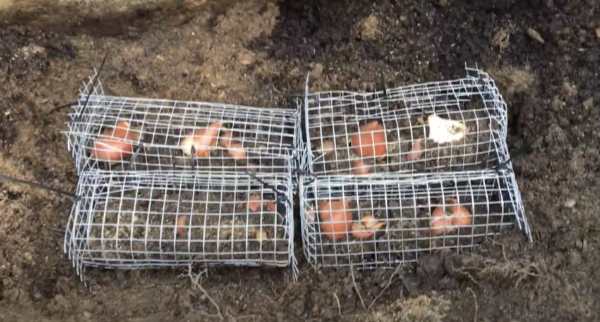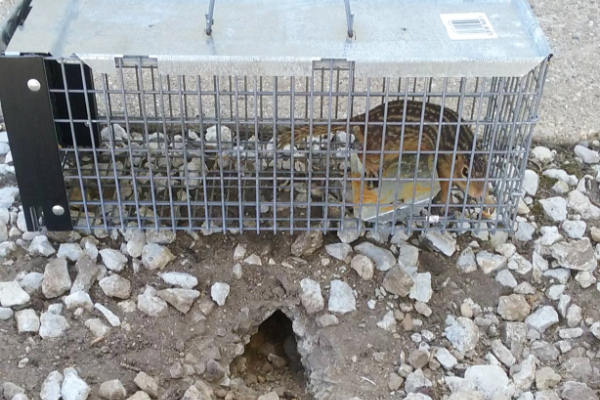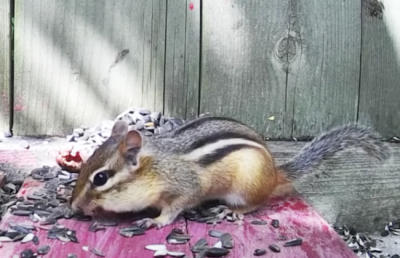Chipmunk Prevention
If you’ve developed a chipmunk problem, chances are it’s gotten out of hand rapidly as these little rodents multiply quite quickly and can potentially cause damage to the foundation of your home or other structures in your yard. Chipmunks dig a complex web of tunnels to store food and hibernate during the colder months, so you want to make sure that the structure of your home isn’t being compromised. To identify whether or not you have an actual infestation, you’ll want to pay close attention during the spring and summer as those are the chipmunk birthing and mating seasons, during which they will be most active above ground. The following are a few steps you can take to prevent chipmunks from becoming too comfortable on your property.
Clean Up Around Bird Feeders
The overflow of seeds from bird feeders is one of the most attractive food sources for chipmunks as they love seeds and nuts. Make sure your bird feeder isn’t spilling seeds onto the ground below and ideally place all bird feeders 20+ feet away from any structure on your property to discourage burrowing.
Protect Bulbs (& Other Plants) in Garden

Chipmunks tend to dig up and destroy certain types of flower bulbs, so make sure you do your research on what bulbs are especially attractive to chipmunks and if possible steer clear of planting those. A few safe bets are daffodils, alliums, and hyacinths. If you decide to plant other types of flower bulbs, make sure to protect them using either bulb cages or wire or plastic mesh laid over the top of the area with the bulbs. 1-inch mesh allows for bulbs to sprout through while preventing any digging under the surface.
Additionally, you can build a gravel border around your garden spaces to protect from chipmunk intruders setting up camp nearby. You can also set up 1/4-inch mesh hardware cloth around your garden spaces that act as a fence to keep critters out. Finally, you can ask a barber for hair clippings to spread around your garden, which are perfectly harmless for your plants but will frighten away chipmunks due to the human smell.
Clean Up Yard
Specifically, you’ll want to check out any large rock or wood piles you’ve amassed and tidy things up, checking for any chipmunk homes or food storage areas that may have developed. Additionally, cutting back untamed bushes or other large plants can help you find the outlets to chipmunk tunnels.
Protect Home Foundation
If you have a problem with chipmunks burrowing under your home, you can set up wood, rock, or mesh fencing around the base of your home in the concerned areas to prevent further digging.
Set Live Traps

Finally, you can set live traps near where you suspect the chipmunk activity to be highest. Note that setting traps in covered areas as opposed to exposed areas will likely be more effective. The best bait to set at the back of traps is peanut butter or sunflower seeds. Once you’ve captured a chipmunk, you’ll want to displace them several miles from your home.

